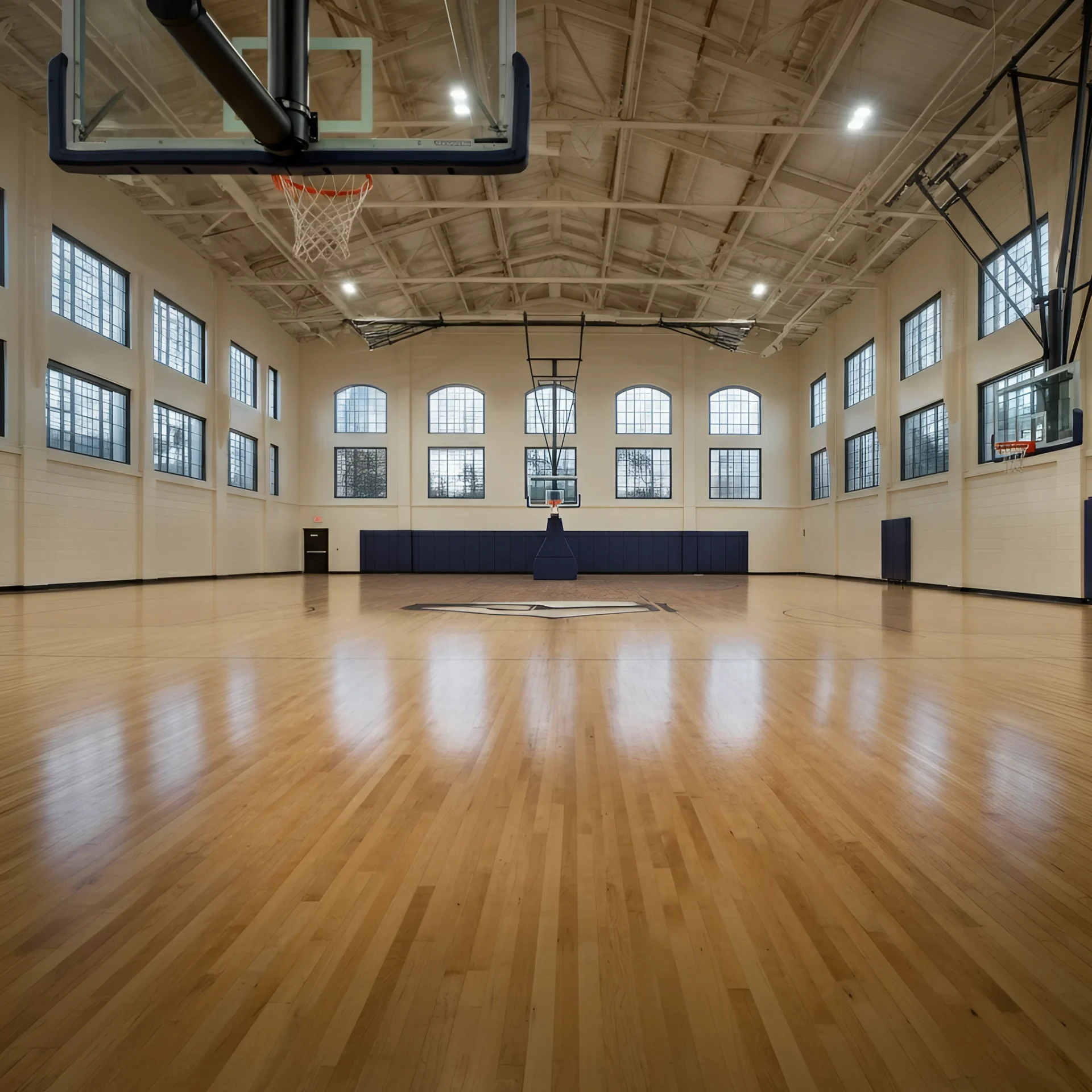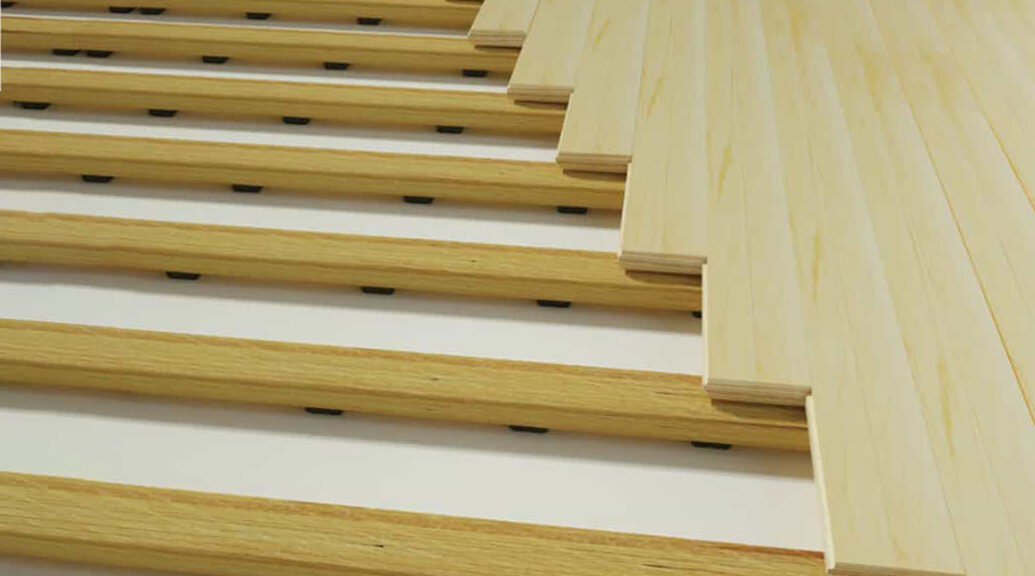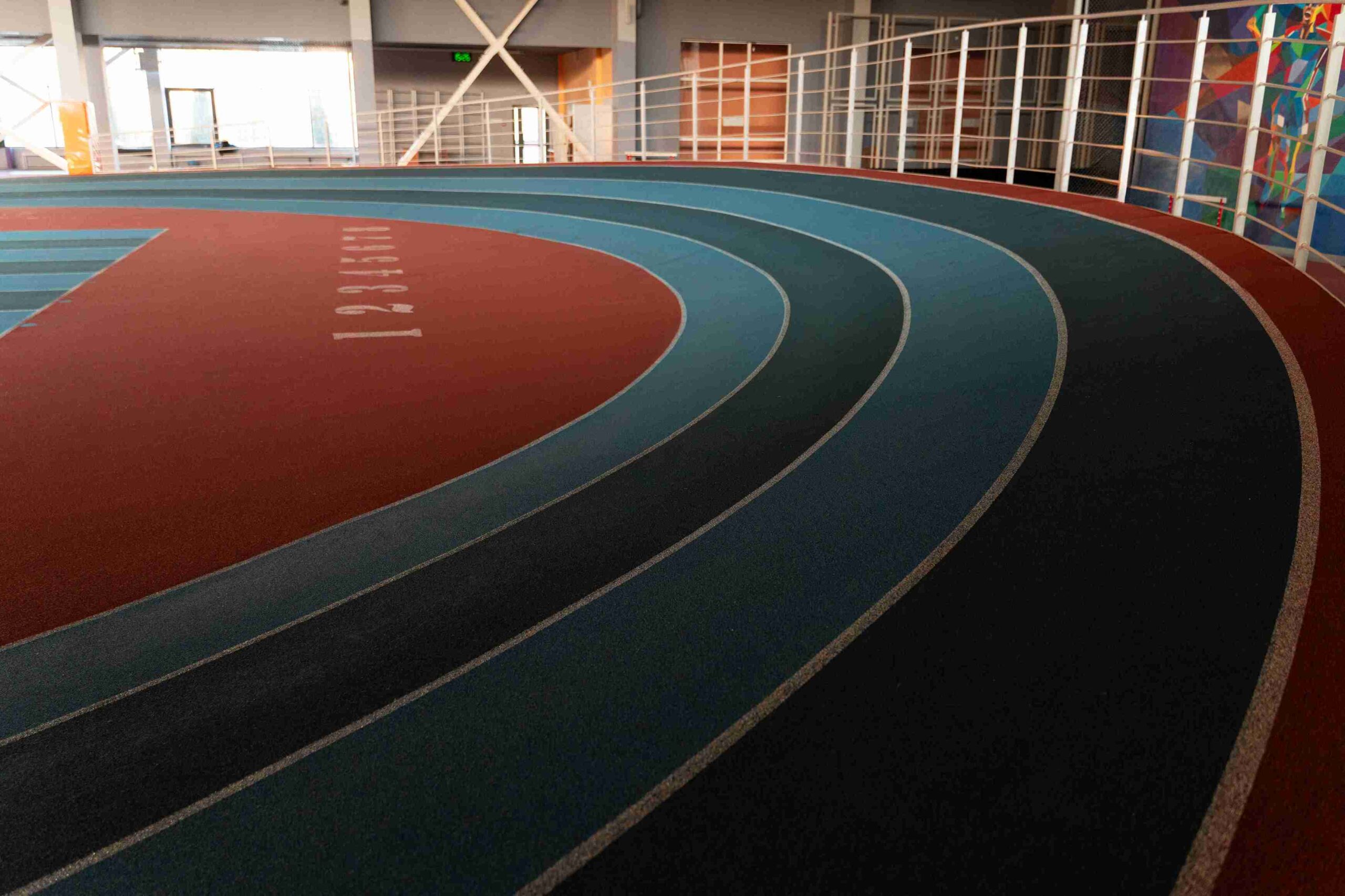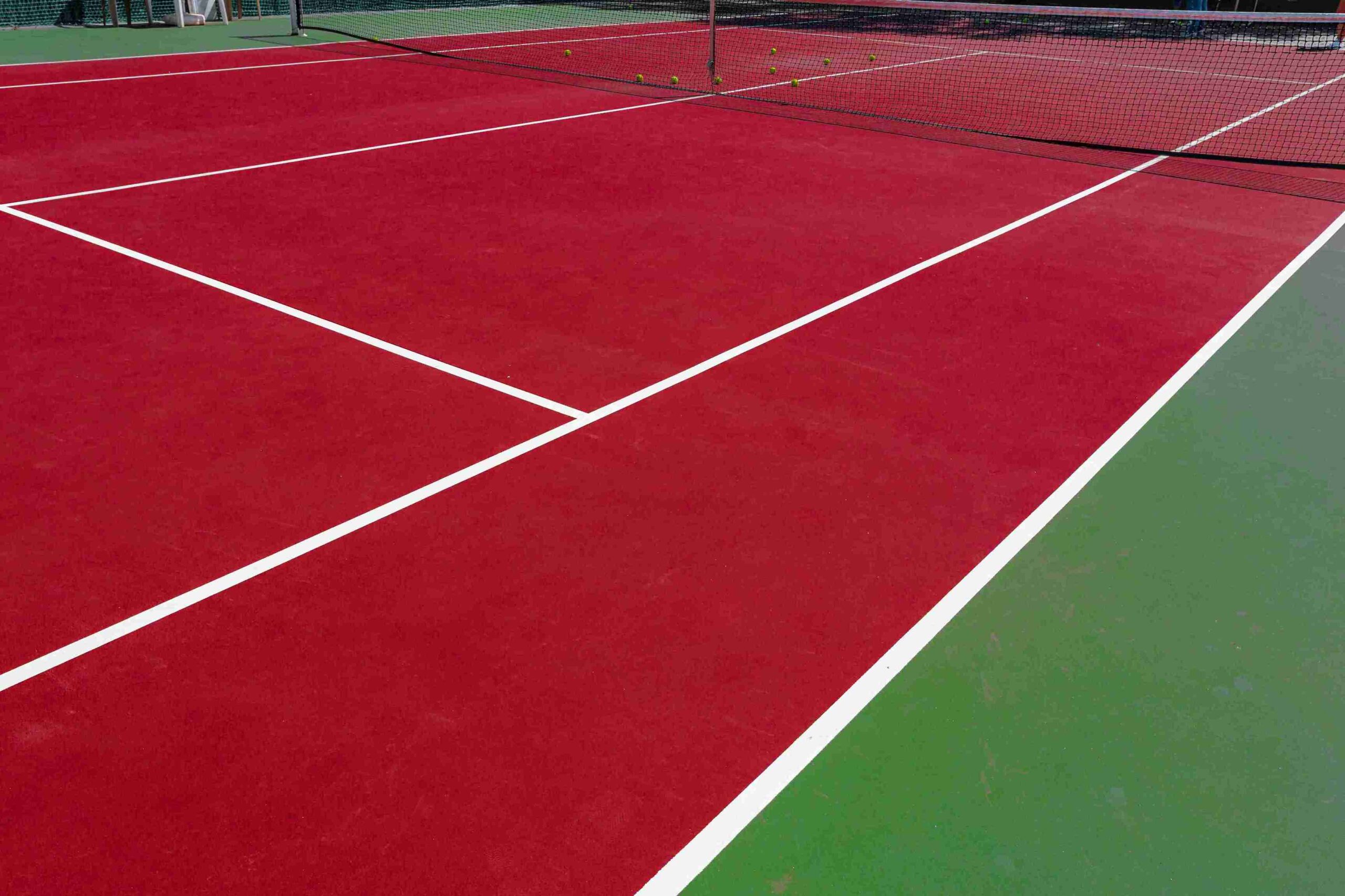Basketball requires precision, agility, and high-performance surfaces that support players’ movements while ensuring safety. Selecting the right flooring material is one of the most critical decisions when designing a basketball court. Among all options, wood flooring continues to be the gold standard for professional and recreational basketball courts. Renowned for its exceptional performance, durability, and aesthetic appeal, wood basketball court flooring outshines its competitors.
This article takes an in-depth look at why wood flooring is a preferred choice, examining its types, performance benefits, durability, long-term cost-effectiveness, and maintenance advantages. We’ll also introduce innovative solutions like VMKON Biomass Sport Flooring for those seeking cutting-edge options in sports facility flooring.
Types of Wood Flooring Commonly Used in Basketball Courts
When it comes to basketball wood flooring, precision craftsmanship and quality materials play a pivotal role. The most popular wood choices include:
- Maple Hardwood
Recognized by the NBA and FIBA, maple hardwood is the most commonly used material for basketball courts. Its dense grain structure ensures excellent resistance to wear and tear, providing a smooth surface ideal for competitive gameplay.
- Oak Hardwood
While slightly less common than maple, oak is another hardwood option with durability and aesthetic appeal. It offers a slightly more rustic look while maintaining reliable performance.
- Engineered Wood Flooring
Engineered wood features a solid wood veneer on top of multiple layers of plywood or high-density fiberboard. This option provides excellent stability and minimizes the effects of temperature and moisture fluctuations.
Understanding the material types is the first step in creating a high-performance court tailored to your needs.
Performance Benefits of Wood Basketball Court Flooring
Wood flooring isn’t just about aesthetics—it’s engineered for performance. Here’s why it stands out:
1. Shock Absorption
Basketball games involve rapid movements, jumps, and impacts. Quality wood flooring systems are designed with built-in shock absorption properties, reducing the risk of injuries like joint strain or fatigue. This makes it safer for athletes of all skill levels.
2. Optimal Ball Bounce
Consistent ball behavior is paramount in basketball. Maple and engineered wood floors are specifically designed to provide standardized ball bounce, ensuring fair and competitive gameplay.
3. Slide Control
A proper amount of surface friction is essential for player safety. Wood sports flooring delivers controlled grip to prevent slipping while allowing smooth transitions between movements.
4. Acoustics
Wood surfaces enhance acoustics by minimizing hollow sounds, creating an elevated experience for players and spectators alike in gymnasiums or stadiums.
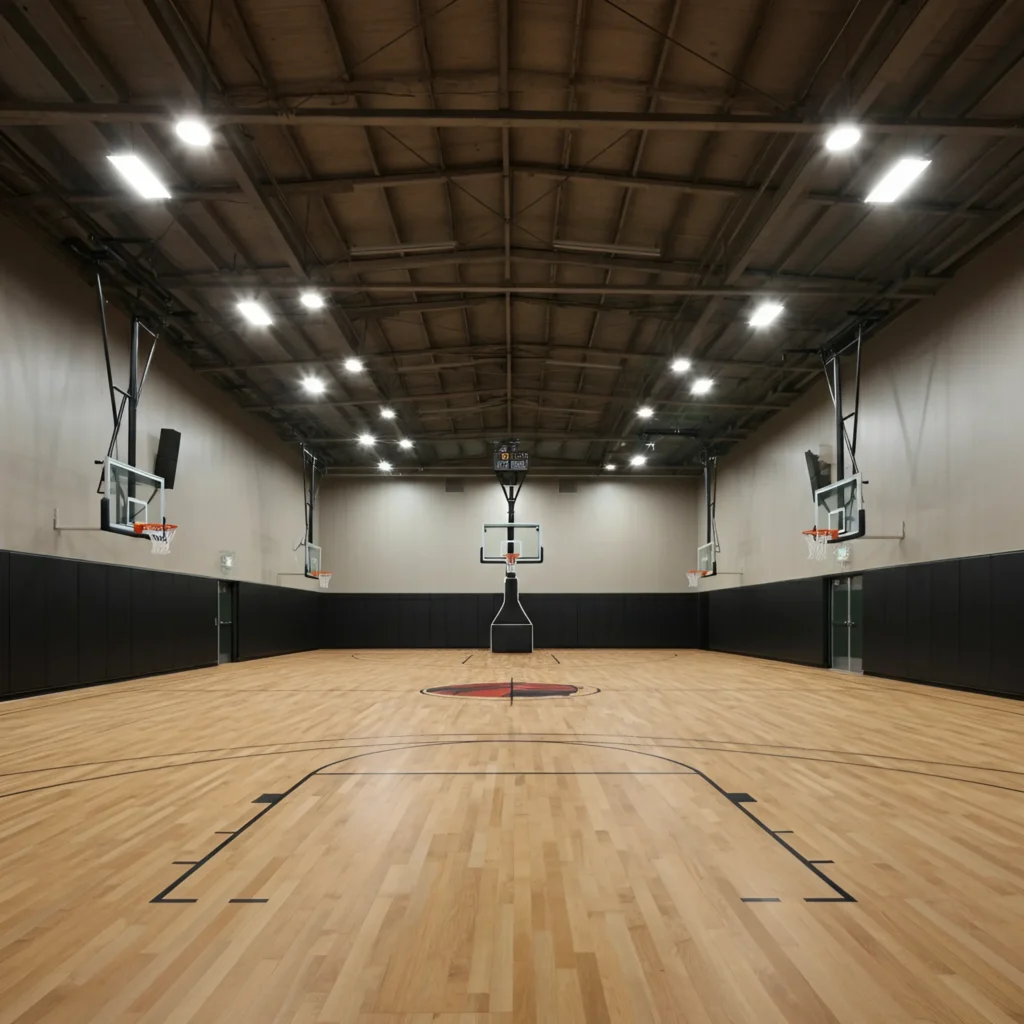

Durability and Maintenance Advantages
1. High Durability Over Time
Wood flooring stands out for its resilience. When properly maintained, hardwood surfaces can withstand heavy foot traffic, demanding gameplay, and years of use.
2. Ease of Maintenance
Maintaining wood basketball flooring is relatively straightforward:
- Regular Cleaning eliminates dust and debris that can degrade the surface.
- Screening and Refinishing restore the vibrant finish and durability of the flooring, ensuring it looks and performs like new.
- Moisture Control is essential to preserve the wood—modern sealing techniques protect against spills and humidity.
Compared to other materials, wood demands fewer significant repairs in the long term, contributing to its cost-effectiveness.
Comparing Wood Flooring to Other Materials
While wood is the top choice, some opt for alternative materials like vinyl, rubber, or concrete. Here’s how wood stands apart:
| Feature | Wood Flooring | Vinyl Flooring | Concrete |
|---|---|---|---|
| Performance | Superior ball bounce, shock absorption | Good but lacks rigidity | Minimal shock absorption; hard surface |
| Aesthetics | Premium, natural look | Industrial; less elegant | Cold and uninviting |
| Durability | Long-lasting with regular maintenance | Moderately durable but prone to wear | Very durable but can crack over time |
| Maintenance | Easy refinishing extends lifespan | Requires frequent cleaning and waxing | Hard to repair without full resurfacing |
While vinyl and concrete may serve in multi-use facilities, they lack the premium performance standards found in wood sports flooring.
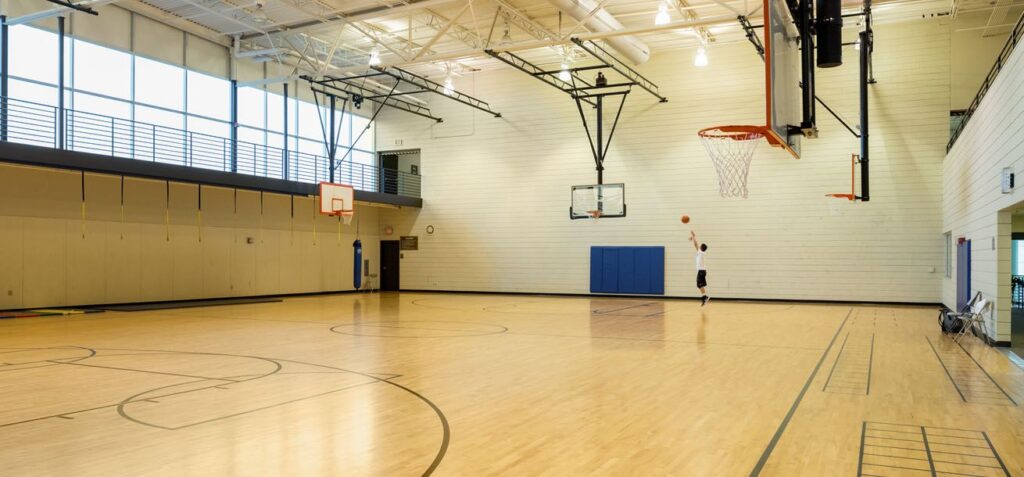

Tips for Selecting the Best Wood Flooring for Basketball Courts
When choosing basketball court flooring, consider the following:
1. Determine Usage Needs
Assess whether the court will host competitive games, recreational use, or multifunctional activities. For example, engineered wood offers enhanced stability for multipurpose areas.
2. Choose the Right Subfloor System
A robust subfloor system enhances shock absorption and ensures longevity. Look for systems with shock pads or cushioning layers.
3. Focus on Quality Standards
Ensure the flooring complies with standards set by organizations like the Maple Flooring Manufacturers Association (MFMA) to guarantee performance and safety.
4. Consider Sustainability
For environmentally-conscious facilities, innovative solutions like VMKON Biomass Sport Flooring offer sustainable alternatives without sacrificing quality.
Long-Term Cost-Effectiveness of Wood Flooring
Although the initial investment in wood flooring may be higher, it proves more cost-effective in the long run due to its durability and minimal repair needs. The routine maintenance required can extend its lifespan significantly, reducing the need for premature replacements.
Additionally, high-quality wood flooring adds value to sports facilities, making it a worthwhile investment for gym owners or athletic facility managers.
Why VMKON Biomass Sport Flooring is a Game-Changer
For those seeking innovation in sports facility flooring, VMKON Biomass Sport Flooring leads the way:
- Eco-Friendly Materials
Made from renewable biomass resources, VMKON’s flooring supports green building initiatives without compromising performance.
- Advanced Durability
Blending durability with shock absorption, VMKON ensures optimal safety and performance for athletes.
- Exceptional Cost-Efficiency
With minimal maintenance and a long lifespan, VMKON flooring offers a smart long-term investment for sports facilities.
VMKON exemplifies the perfect marriage between sustainability, performance, and reliability.
The Winning Choice for Basketball Courts
Choosing the right flooring for a basketball court isn’t just about aesthetics—it’s about performance, safety, and long-term value. Wood flooring remains the gold standard, offering unparalleled benefits like shock absorption, consistent ball bounce, and premium durability.
If you’re planning your next court, consider modern options like VMKON Biomass Sport Flooring for an eco-friendly and high-performance solution. To learn more about designing basketball courts or to explore how wood flooring can elevate your facility, contact VMKON today.

